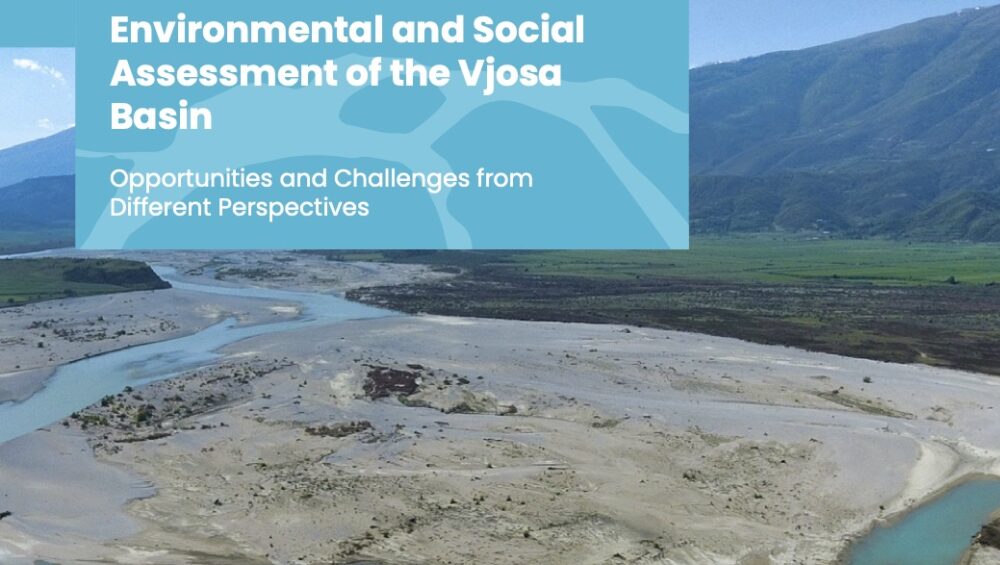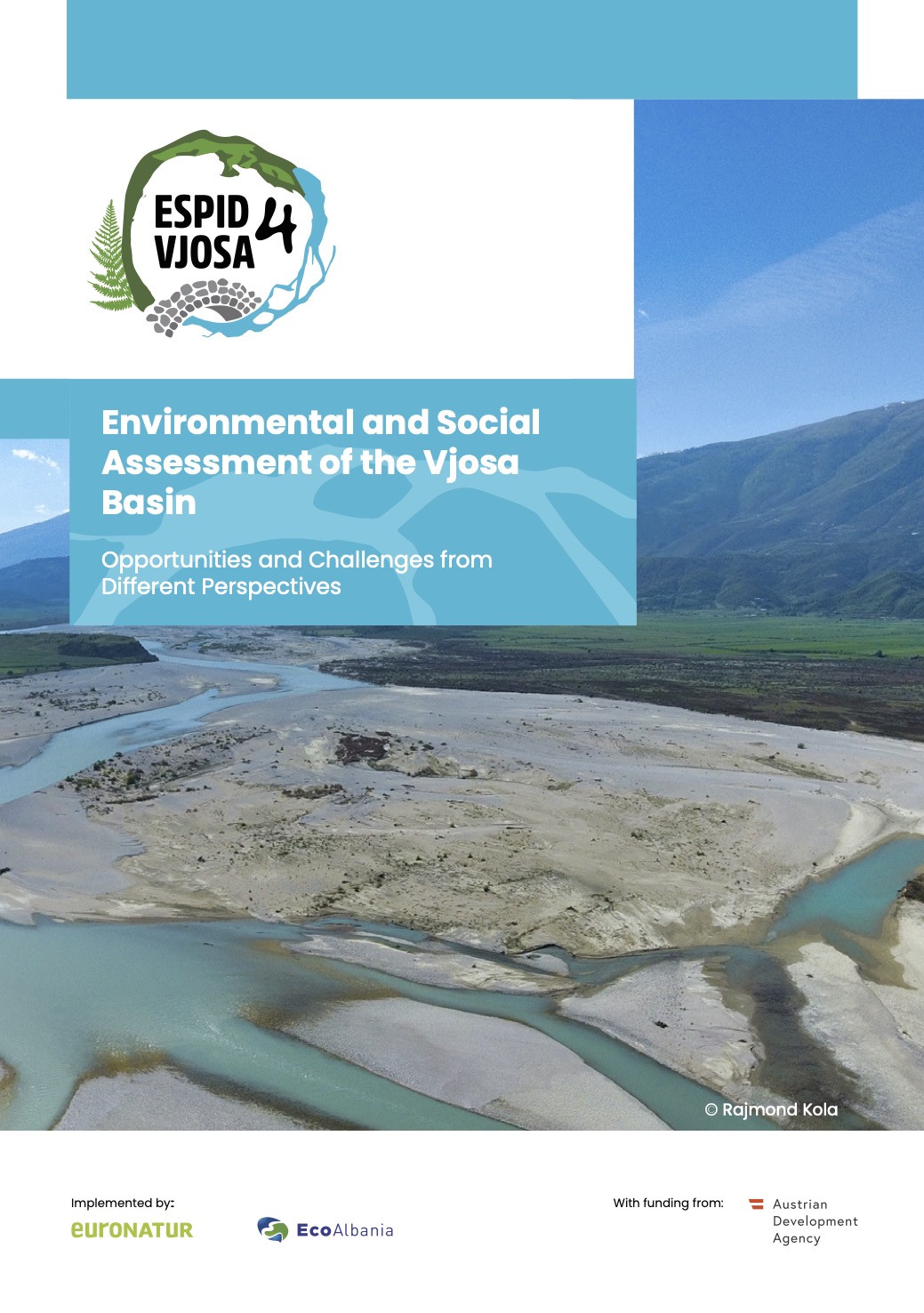Vjosa: A Natural Treasure Under Threat – Challenges and Sustainable Solutions
The Vjosa River, one of the last wild free-flowing river systems in Europe, is vital for biodiversity, local livelihoods, and resilience to climate change. This comprehensive report, developed under the ESPID for Vjosa project, examines seven key themes for the sustainable development of the Vjosa basin – from flood risk management and water supply to renewable energy, tourism, and climate change. Among the most important findings is the urgent need for integrated policies that align nature conservation with socio-economic development.
Energy Development and Tourism: Towards a Balanced Approach
The report highlights increasing pressures on the river, including the construction of hydropower plants and the lack of wastewater treatment infrastructure. With 58 hydropower plants planned within the Vjosa basin, the ecosystem faces serious fragmentation risks. At the same time, the potential for solar and wind energy development is significant but requires strategic planning and community involvement. Sustainable tourism, aligned with conservation values, presents a powerful opportunity for economic growth without compromising the ecological integrity of the Vjosa.
Recommendations for a Sustainable Future for the Vjosa
To effectively protect the Vjosa National Park and surrounding areas, the report proposes concrete actions: engaging local communities in management, strengthening legal frameworks for protected areas, implementing nature-based solutions for flood control, and improving institutional cooperation. Ultimately, the long-term preservation of the Vjosa requires a cross-sectoral and inclusive approach—one where nature and development go hand in hand.








